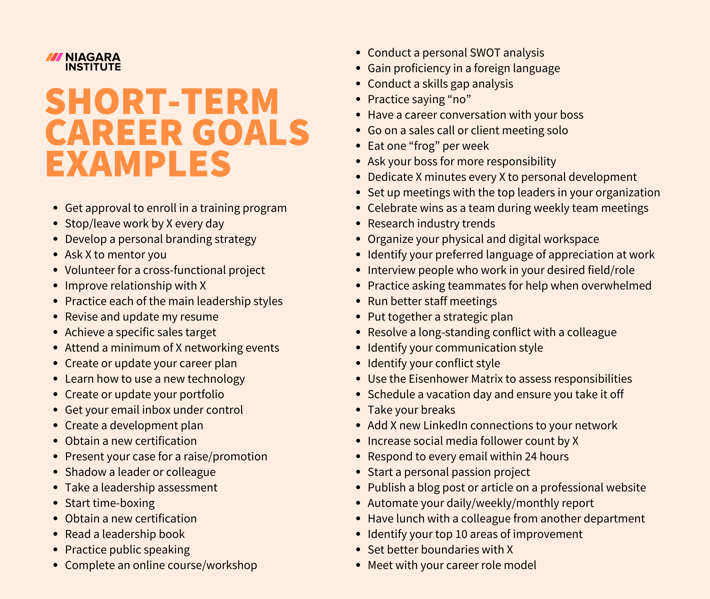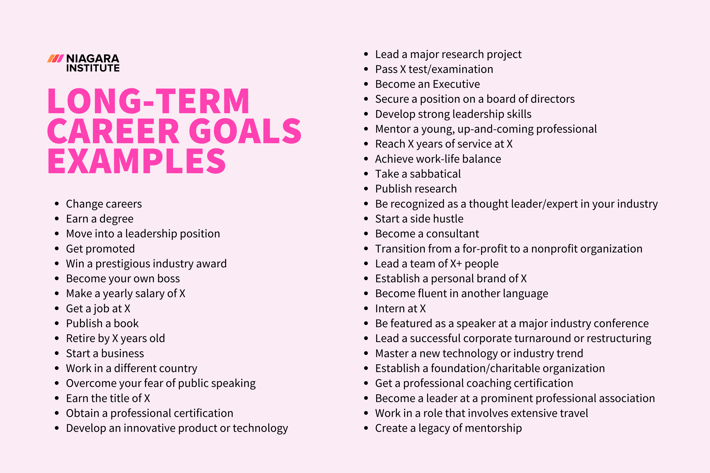4 min read
Take Control of Your Career Trajectory: A Brief How-To Guide
It can happen at any point in your professional life, no matter your role or industry. One day you're moving along in your career, quite content with...
4 min read
 Michelle Bennett
:
Jan 9, 2024 5:00:00 AM
Michelle Bennett
:
Jan 9, 2024 5:00:00 AM
.png)
You can’t afford to take a passive approach to your career. In fact, you need to be in the driver’s seat of it. You should be one in control, actively managing it every step of the way.
Otherwise, you may end up on a path that doesn’t authentically align with your aspirations and values. When that happens, dangers like disengagement and demotivation become a more significant threat to your overall sense of fulfillment and happiness.
Fortunately, setting short and long-term career goals for yourself is one way to exercise control over your career and shape it so it best suits you. If you have yet to do so or are looking to update the goals you have, this article will help, as there are over a hundred examples of short and long-term goals included below. Look at them as inspiration, and then use the Goal Setting Workbook to flesh your goals out and track your progress.
Short-term career goals are defined as the objectives you want or need to achieve within a relatively brief timeframe, typically over the next few months to a year, that get you closer to your career aspirations. Think of them as stepping stones. By breaking down your broader long-term ambitions into more manageable, immediate, and tangible goals and then celebrating them as you achieve them, you’ll feel a greater sense of accomplishment, motivation, confidence, and direction.
Your short-term career goals should reflect your unique aspirations, values, strengths, weaknesses, and development areas. However, these short-term career goals examples should give you an of the types of goals you want to set for yourself.

Long-term career goals are defined as significant and enduring aspirations you set for your professional life, typically spanning multiple years or even decades. They are not easy, nor are they quick to achieve. Their complex and transformative nature demands strategic planning, ongoing dedication, and consistent effort from you over an extended period of time. By establishing your long-term career goals, you are casting a clear and comprehensive vision for yourself of who you want to be as a professional and what you want to achieve over the course of your career.
Long-term career goals vary greatly from person to person as they depend on your personal interests, skills, and aspirations, as well as your personal values. They can take a long time to solidify and an even longer time to achieve, so don’t rush this part of the process. Consider these long-term career goals examples and use them as a starting point for you to create your own.


4 min read
It can happen at any point in your professional life, no matter your role or industry. One day you're moving along in your career, quite content with...

4 min read
Your meeting with your leader is about to take place in an hour. At your last one-on-one meeting, you were asked to develop the professional goals...
.png)
7 min read
Professional goals should give you something to work towards and look forward to. They provide a sense of purpose, ownership, and pride when they're...